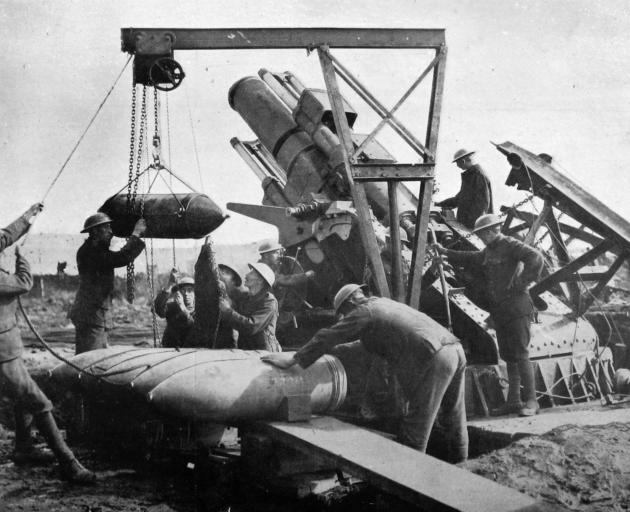
The visiting returned soldiers who have made their stay in Wellington a memorable one were again given leave which many of them spent in ill-advised fashion. Throughout the afternoon and evening the civil police were kept busy dealing with inebriated soldiers, who freely indulged in stand-up fights and general disorderly behaviour. Many of the men fought amongst themselves, and all attempts to pacify them proved fruitless. Several soldiers managed to secure bottles of liquor and in the melee broken glasses was strewn indiscriminately, An unpleasant feature of the affair was the objectionable manner in which some of the men behaved to women. This occurred near the waterfront, and in same instances the police were compelled to resort to statutory measures.
Bar closure proposed
The report which we published yesterday of the scenes that were witnessed in Wellington on Friday last, when parties of soldiers who had arrived that day by a troopship became more or less intoxicated and created disturbances in the public street, will have created an unpleasant impression in the community. Unfortunately this is not the first occasion on which scenes of a regrettable character have occurred, in which returned soldiers have been the principal participants at the ports of arrival of transports. The blame for the occurrences of this nature rests with the authorities more largely than with the soldiers. A great deal of allowance must be made for these men upon their safe return to new Zealand, especially if they have been engaged in actual fighting during their absence and have experienced the horrors of war.
Turnbull collection
Mr A. H. Turnbull, whose death occurred in Wellington last week was, like Dr Hocken, an indefatigable collector of literature relative to New Zealand. It is believed that his library was the finest and largest collection of New Zealand records in the world. It was practically a priceless collection, as there were books, logs, and papers in the collection that were sole originals. For years Mr Turnbull had been in touch with the leading London and American collectors, who were under instruction to secure anything of the kind on his behalf, His collection of books on early New Zealand was unique, and the portfolios of prints and sketches dealing with the genesis of the colony were remarkable. Pamphlets were another feature, and his ships' logs dating back to the voyages of Captain Cook were of incalculable historical value.
Shipwreck Society's work
The work of the Shipwreck Relief Society of New Zealand was explained by Captain Fleming, the local representative of the society, at the meeting of citizens in Auckland in connection with the Wimmera disaster. He thought they had not realised the importance of the work the society had already done. When even a little scow was wrecked on the Auckland coast, the head office at Dunedin promptly telegraphed to him directions to see to the relief of the sufferers - sometimes, in the case of an out-of-the-way mishap, almost before he heard of the occurrence. - ODT, 3.7.1918.












